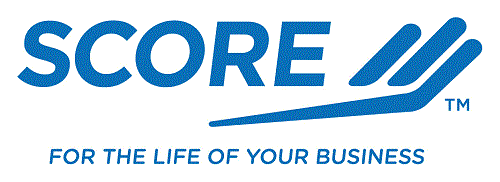By Cliff Ennico
[From a keynote speech given by the author last week to Connecticut’s assembled SCORE chapters at Gateway Community College in New Haven, Connecticut]
Fifty years ago, the U.S. Congress did something smart for America (yes, it does happen sometimes).
It authorized the creation of a volunteer organization called S.C.O.R.E. (the letters initially stood for “Service Corps of Retired Executives”) under the umbrella of the U.S. Small Business Administration.
The idea was that struggling small business owners needed information, education and coaching in order to survive. Rather than providing such advice “top down,” through government publications, seminars and the like, Congress decided that such advice was best provided “peer to peer,” by seasoned business owners and executives who could pass their experience in the “real world” on to younger business people.
Boy, has this thing worked.
Today, SCORE is the largest small business consulting organization in America, if not the world, with over 350 chapters nationwide, and some 13,000 consultants with an average of 30 years of business experience each. Those counselors have worked with over 10 million entrepreneurs over the past five decades.
Needless to say, the last 50 years has brought a lot of change to SCORE.
First of all, the idea of a “small business” is a lot different than it was in 1964. Back then, a “small business” meant a basic retail or service business with a local market – dry cleaners, restaurants, hardware stores, and so forth.
Today, many if not most of SCORE’s clients are technology entrepreneurs developing mobile smartphone applications (“apps”), video games, and so-called “software as a service” (SaaS, or “cloud”) products. Even those SCORE clients engaged in basic retail or service businesses are often conducting them online in a national, or international, marketplace.
Also, the public perception of entrepreneurs and business owners is a lot different than it was 50 years ago. Back then, someone running a small business was considered an “also ran” in society. If you were studying for a MBA (Masters in Business Administration) degree, you were training to work as a midlevel executive in a Fortune 1000 corporation, or perhaps a giant bank or insurance company. That’s where you found money, status and prestige in the business world.
Even in high school, the “business track” was considered second rate. My high school guidance counselor called me into his office once to inform me that he thought I was taking too many courses in accounting and business math – he felt that not having classes like sociology and 20th century American literature on my transcript would put me at a disadvantage in the college recruiting process! One of the courses I took which worried him was an “Introduction to Computer Math” course – can you imagine that?
Today, entrepreneurs are America’s heroes – every high school kid you meet who doesn’t want to be a rock star on “American Idol” wants to be the next Steve Jobs, Bill Gates or Mark Zuckerberg. Every MBA program at America’s colleges and universities has an entrepreneurship track, and it is usually extremely competitive.
Finally, SCORE counselors are a lot different than they were 50 years ago. SCORE is no longer an organization of “retired executives,” with the image that calls to mind of tired, burned-out old white guys looking to get out of the house and away from their spouses for a few hours each week (although, seriously, I believe SCORE has probably saved more marriages than just about any other nonprofit organization in the U.S.).
Today’s SCORE counselor is much younger, more vital, more dynamic and more in tune with the times than his earlier counterpart. He is much more likely to be female, or from a culture that can readily identify with the Asian, African and Latin American immigrant communities that generate many of today’s small business owners in America. That is one thing, by the way, that has not changed in 50 years: if you want to meet someone who truly understands what this country is all about, and what it takes to build a successful business here, talk to a recent immigrant.
Yes indeed, a lot has changed in the last 50 years. But some things have not changed, and will never change:
- There will always be business people with excellent ideas for products and services but who don’t know how to make them a reality;
- There will always be business people with really stupid ideas who need to be talked out of them and discouraged from throwing their retirement savings away on phantom dreams, but in such a way they don’t give up on entrepreneurship altogether; and
- There will always be people who are not suited for a traditional corporate career or who are cast aside by corporate america and need to learn to become entrepreneurs in spite of themselves.
For such people, SCORE is an invaluable – often the only available – resource.
Happy 50th birthday, SCORE! As the Italian people say, “cent’ann” – may you live 100 years!
Cliff Ennico (www.succeedinginyourbusiness.com), a leading expert on small business law and taxes, is the author of “Small Business Survival Guide,” “The eBay Seller’s Tax and Legal Answer Book” and 15 other books.







